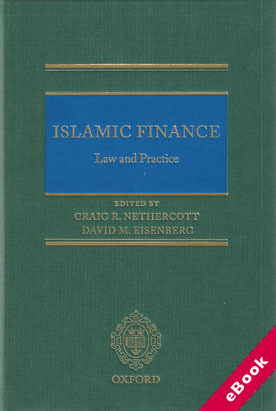
The device(s) you use to access the eBook content must be authorized with an Adobe ID before you download the product otherwise it will fail to register correctly.
For further information see https://www.wildy.com/ebook-formats
Once the order is confirmed an automated e-mail will be sent to you to allow you to download the eBook.
All eBooks are supplied firm sale and cannot be returned. If you believe there is a fault with your eBook then contact us on ebooks@wildy.com and we will help in resolving the issue. This does not affect your statutory rights.
This work is a practical and commercial guide to the fundamental principles of Islamic finance and their application to Islamic finance transactions. Islamic finance is a rapidly expanding, global industry and this book is designed to provide a practical treatment of the subject. It includes discussion and analysis of the negotiation and structure involved in Islamic finance transactions, with relevant case studies, structure diagrams and precedent material supporting the commentary throughout.
An introductory section describes the theoretical background and explains the principles (and their sources) of Islamic law which underpin Islamic finance practices, providing an important backdrop to the work as a whole. The work also considers the role of Shariah supervisory boards, Islamic financial institutions and the relevance of accounting approaches.
The work adopts an international perspective to reflect the pan-global nature of the industry and accepted practices, with the aim to bring together different schools of thought applied in international Islamic finance transactions. It also highlights any regional differences in accepted practice by reviewing the position in the Gulf states, Asia, the UK and Europe and the USA.
The second part of the book concentrates on Islamic financial law in practice and begins with a section on financial techniques. This section explains the basic requirements for Islamic finance contracts both in terms of the underlying asset types and also both the applicability and acceptability of the underlying asset. There is a full discussion of the various types of contractual models such as Mudaraba (trustee finance), Musharaka (partnership or joint venture), Murabaha (sale of goods), and Sukuk (participation securities: coupons etc). The nascent area of Takaful (insurance) is also covered as are matters specific to the important field of project and asset finance.